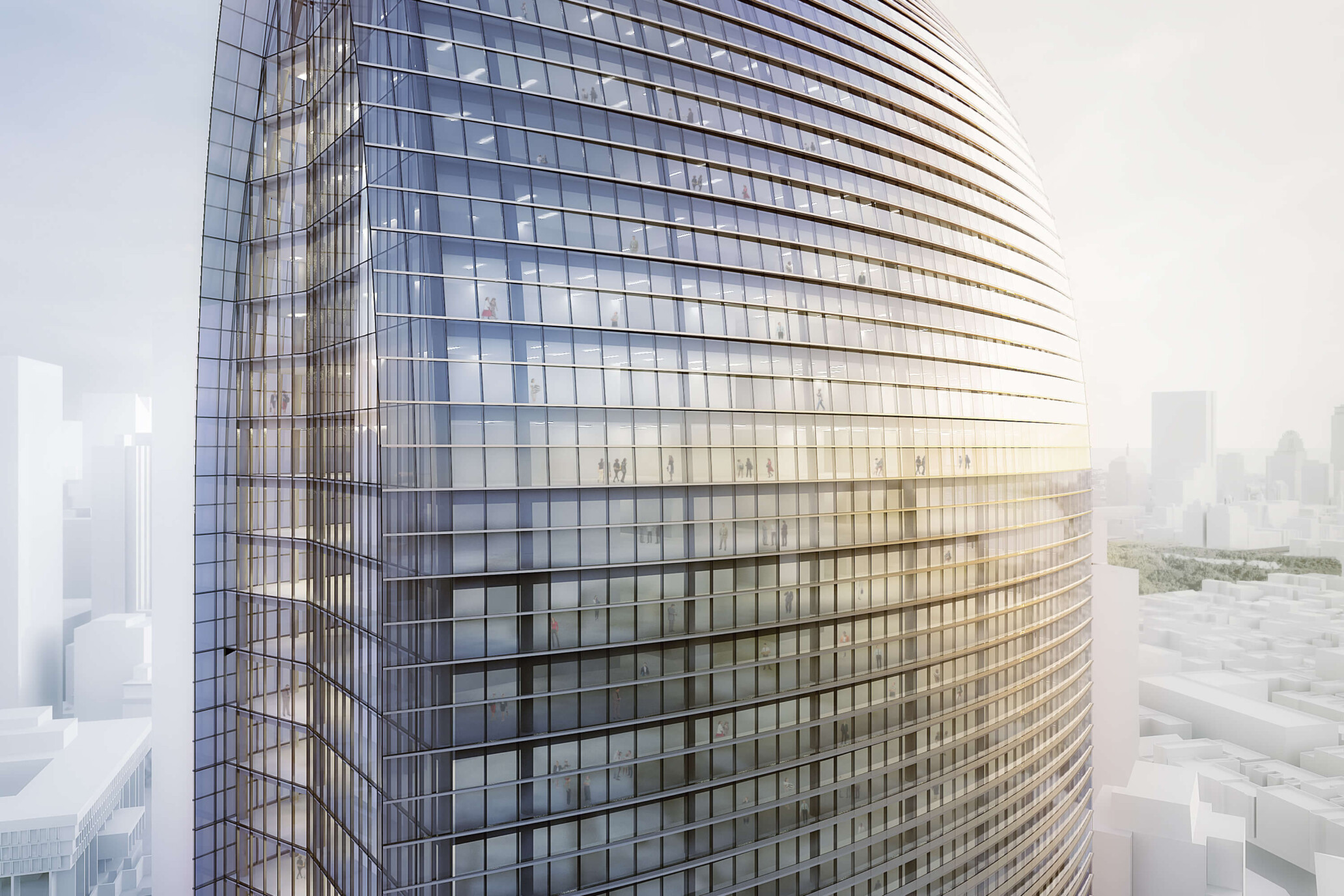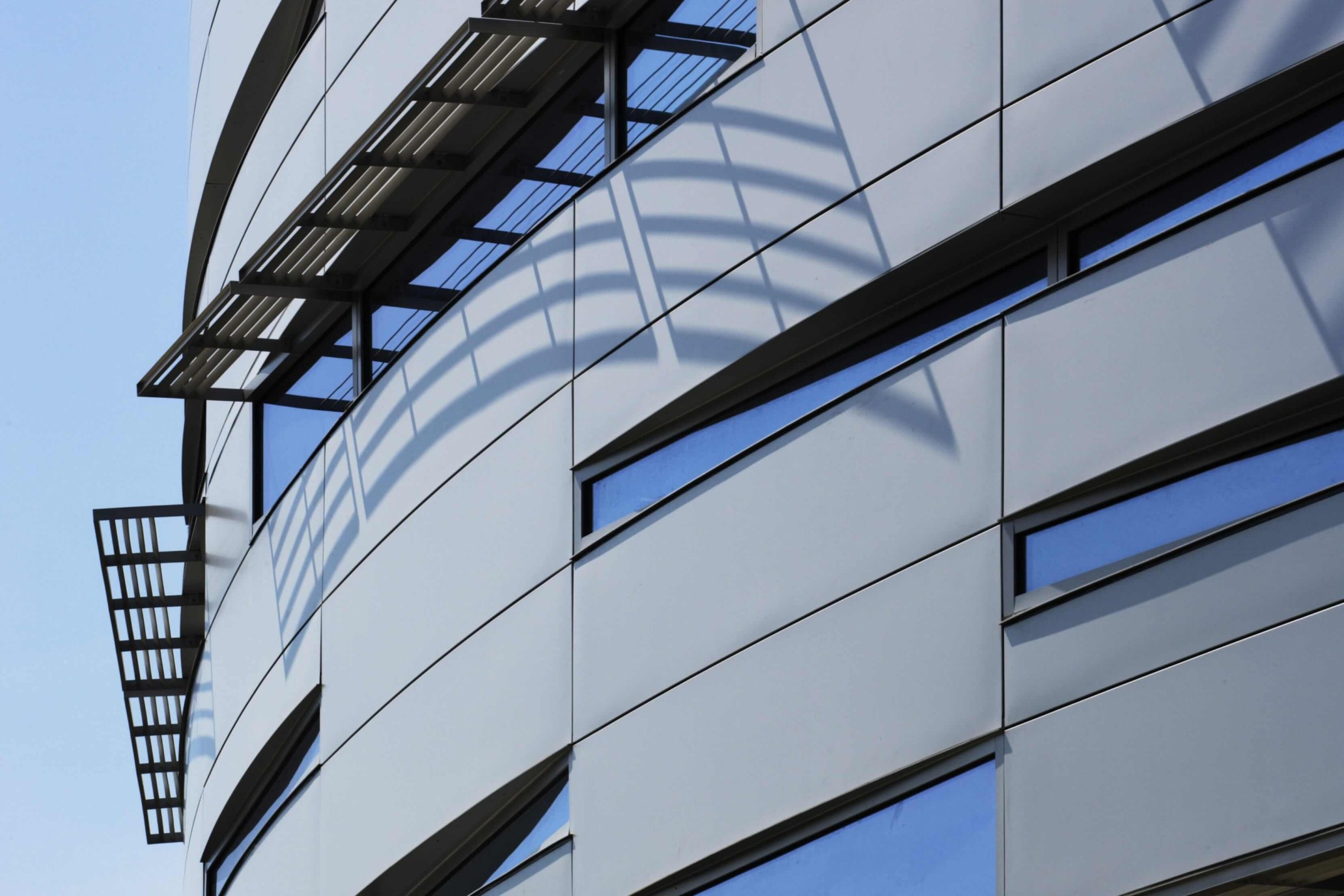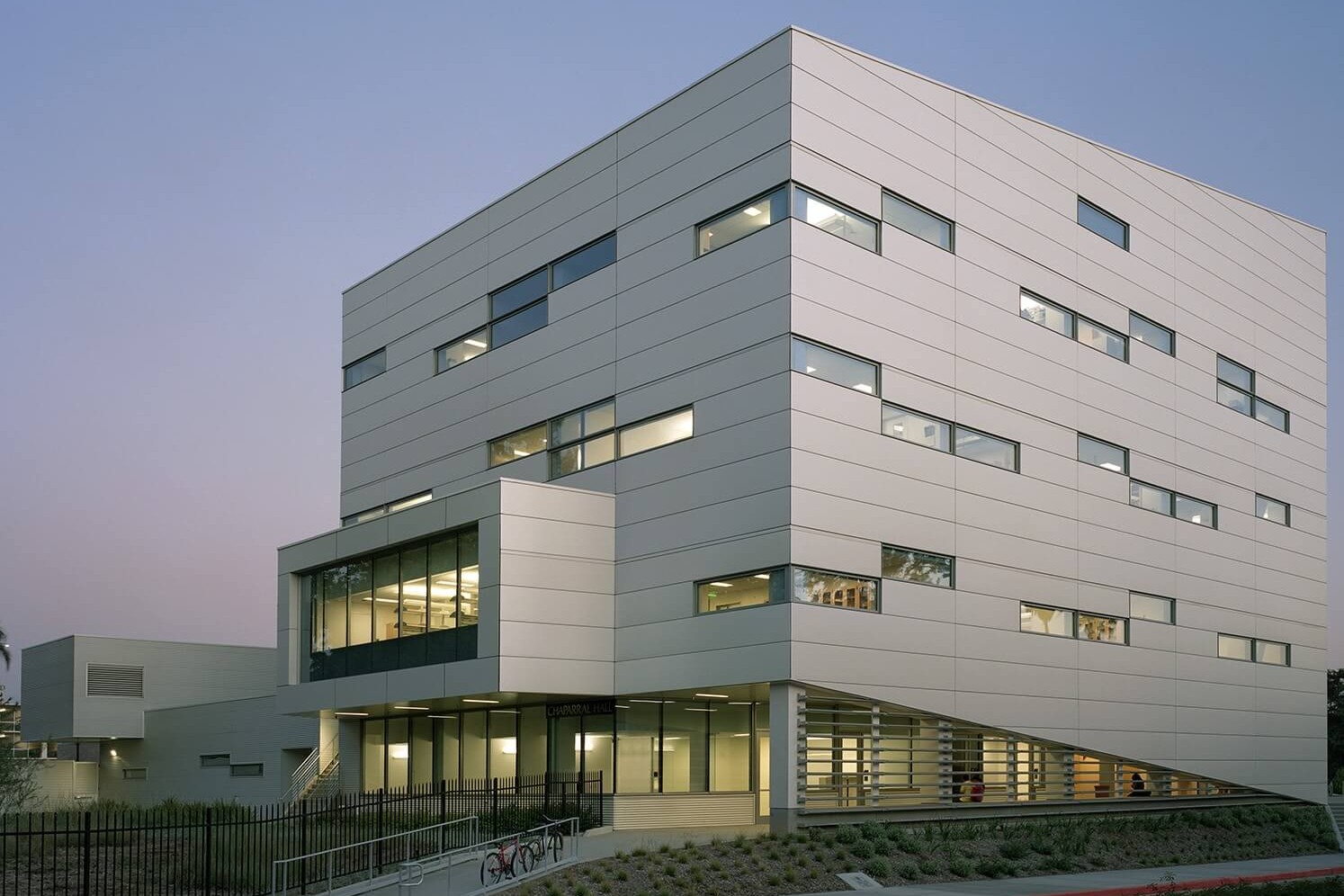Resnick Sustainability Center at Caltech
Essentially a makerspace for scientists and engineers, Caltech’s Resnick Sustainability Center will be a dynamic hub for critical research into the most pressing climate and sustainability challenges we face. True to the center’s name and purpose, it incorporates a variety of sustainable materials and features to make the building the most sustainable facility on the Caltech’s campus . The 80,000-square-foot project is not only on track to earn LEED platinum certification but also is designed to open new figurative gateways to sustainability in the realms of research, education, and societal impact.
The building envelope is conceived as an undulating glass scrim, using fritted low-E glazing and integral shading fins to minimize glare and achieve optimal energy performance, targeting LEED Platinum. The transparency reveals the internal research activities, including large scale experiments supported by a gantry crane, to spark the curiosity of passersby and illuminate the mission of the center. The core of the building, containing labs and classrooms, is a concrete frame to dampen vibration while a public atrium at the north is constructed of cross laminated timber for visual and textural warmth, as well as achieving a high level of sustainability. Natural materials, colors and fabrics were selected for their biophilic characteristics. Yazdani Studio of CannonDesign implemented in the design an array of interactive learning classrooms, workshops, collaboration spaces, undergraduate teaching labs and research labs.
The solar science and catalysis center will focus on the synthesis of new materials to harness solar energy including a solar roof upon which photovoltaic devices can be tested under real-world conditions. A remote sensing center will enable faculty and students to guide satellites in the stratosphere to measure various aspects of the planet, such as soil moisture, sea levels, and methane emissions. The EBE laboratory will support innovative interdisciplinary research to understand how diverse lifeforms, from microbes to insects to plants, interact with their environments.
Design-Build Partner: Hensel Phelps
Size 80,000 SF
Location Pasadena, CA
Year 2024
Client Caltech


